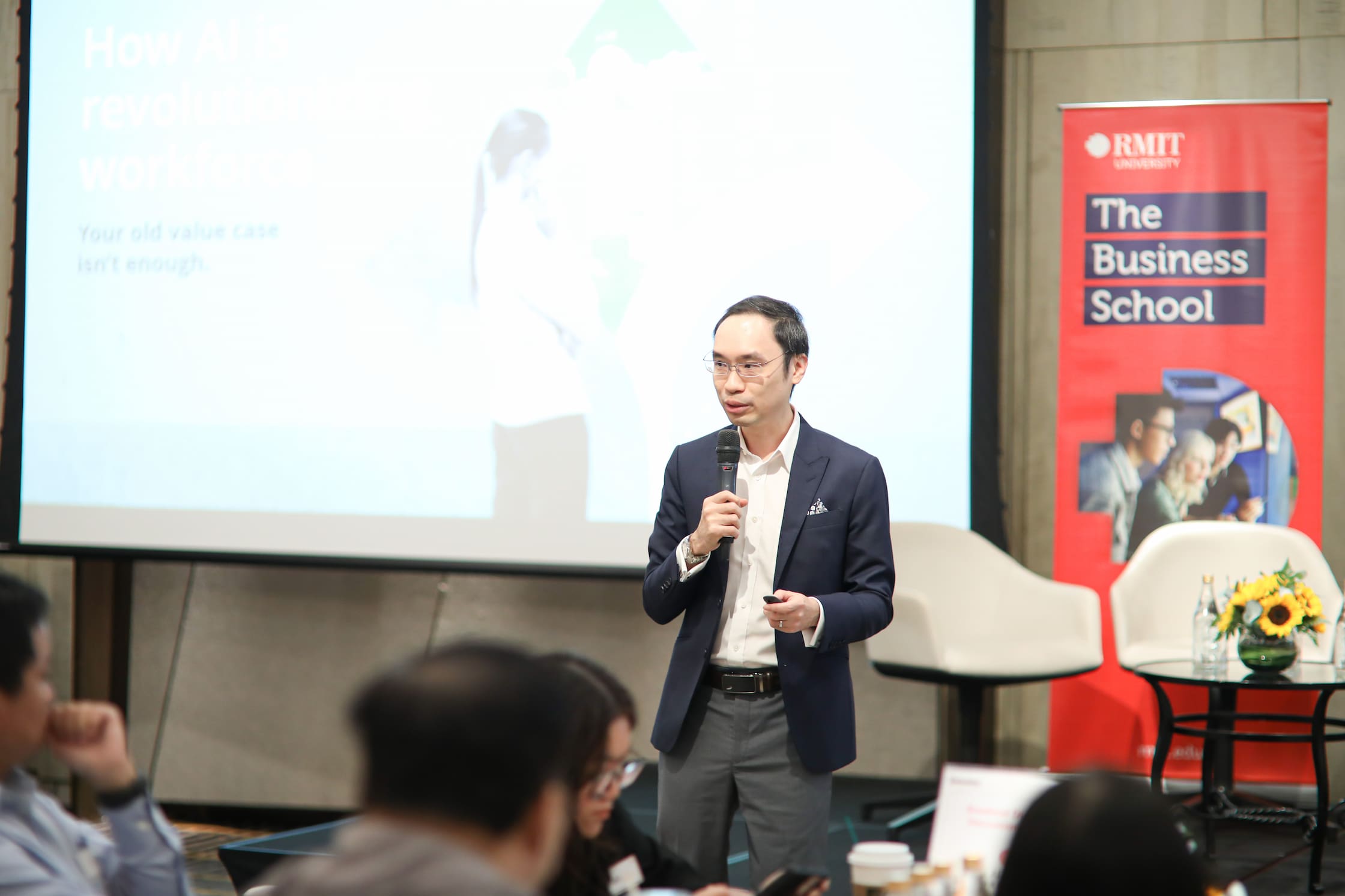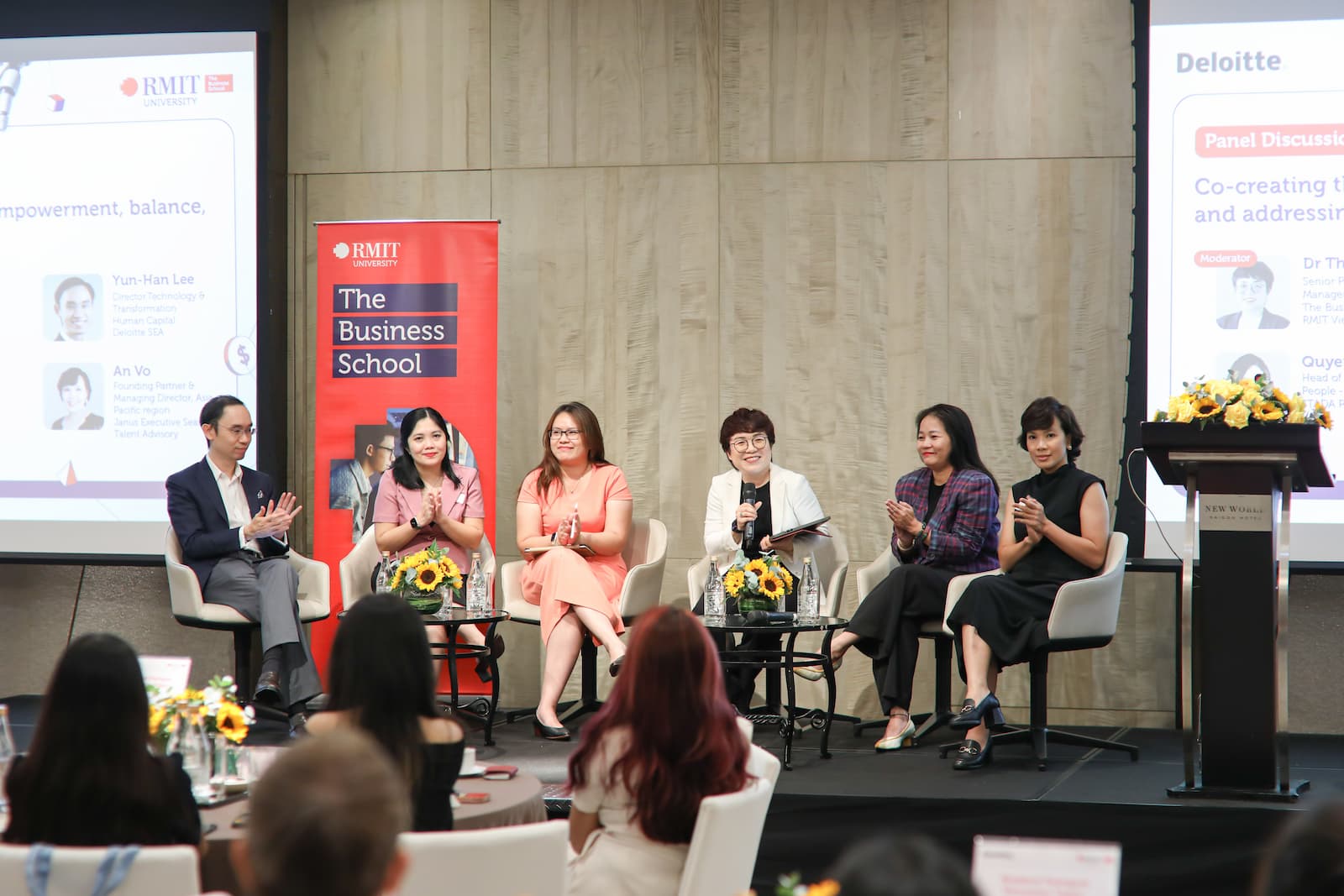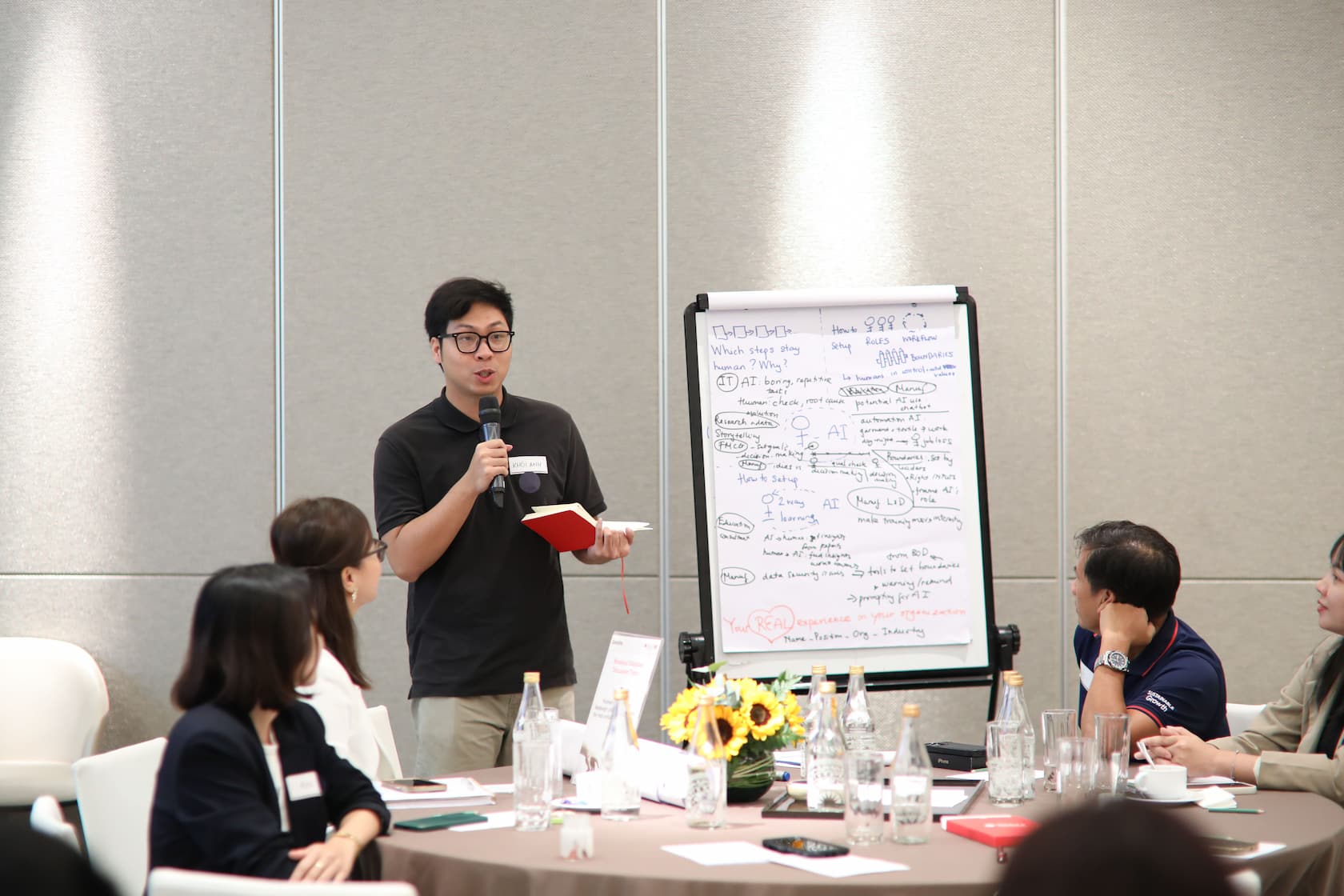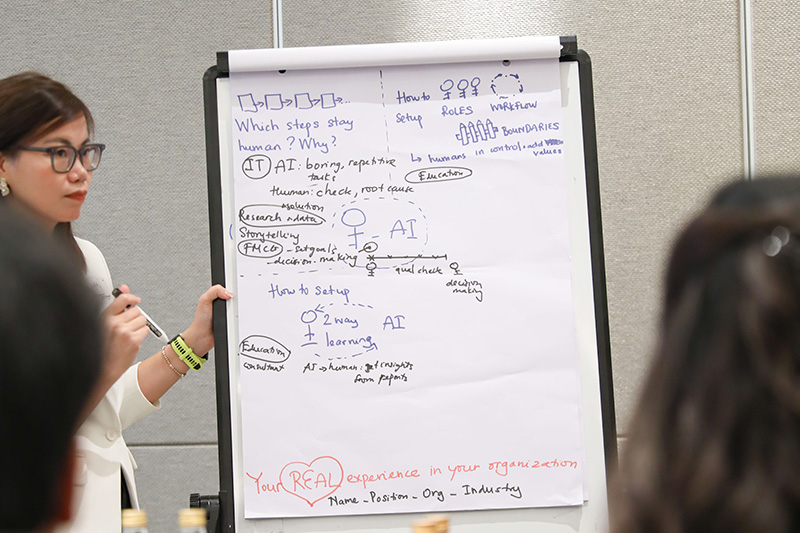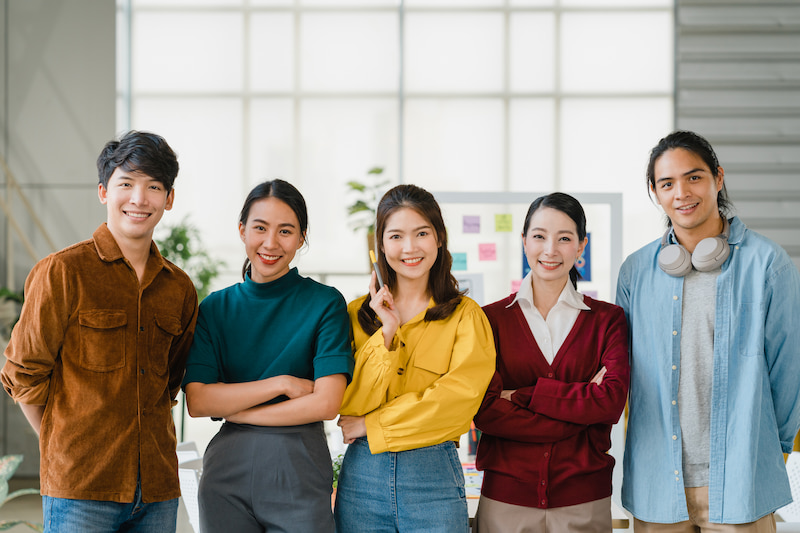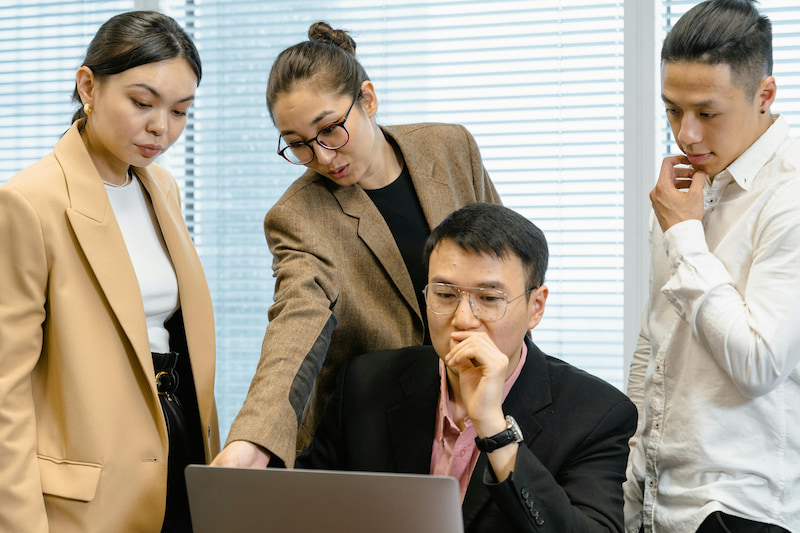Ms Vo Thi Minh An, Founding Partner and Managing Director, Asia Pacific region, Janus Executive Search & Talent Advisory, shared insights from her work in executive search across Asia.
“There is a lot of buzz and energy around AI. However, we haven't seen the same level of excitement when it comes to requirements, adoption and implementation by businesses. In Vietnam, only two out of ten jobs we’re hiring for require AI-related skills,” she said.
“Empathy is the number one skill required across all levels; it will be hard to be replaced by AI.”
She also emphasised the importance of analytical and critical thinking in a landscape where AI tools rarely acknowledge uncertainty.
“AI never says ‘I don’t know’. That’s why we need people who can question, validate and think critically,” she said.
Ms Pham Thi Quy Hien, Director of Human Resources at Masan Consumer Holdings, offered a practical perspective on building AI capabilities while preserving human values and privacy. Their strategy includes deploying internal Copilots for more than 5,000 employees, empowering leaders as champions, and conducting change management workshops.
“AI won’t take your job, it’ll only take the job if you don’t know how to use it,” Ms Hien said, emphasising the importance of psychological safety.
Head of Culture and People at STADA Pymepharco Vietnam Ho Thi Bach Quyen explained the evolution of her role from managing operational HR matters to Culture and People, reflecting a shift toward nurturing the right culture, capabilities, and talent. She introduced the organisation’s initiatives: growth culture, idea generation and reverse mentoring.
She stressed the importance of leadership behaviours that foster trust and openness during AI-driven transformation. This includes training for new hires, cultivating a culture of appreciation, recognition and tailoring approaches to different generations.
Ms Vo Kim Thoa, Senior Manager of Organisation Transformation, Technology & Transformation at Deloitte SEA, said while AI is transforming the nature of work, it cannot replace humans.
“Work is changing significantly,” she said.
“Some tasks can be performed more efficiently by AI, but when it comes to curating content or validating its accuracy, human judgment is still essential. People remain in the loop.”

